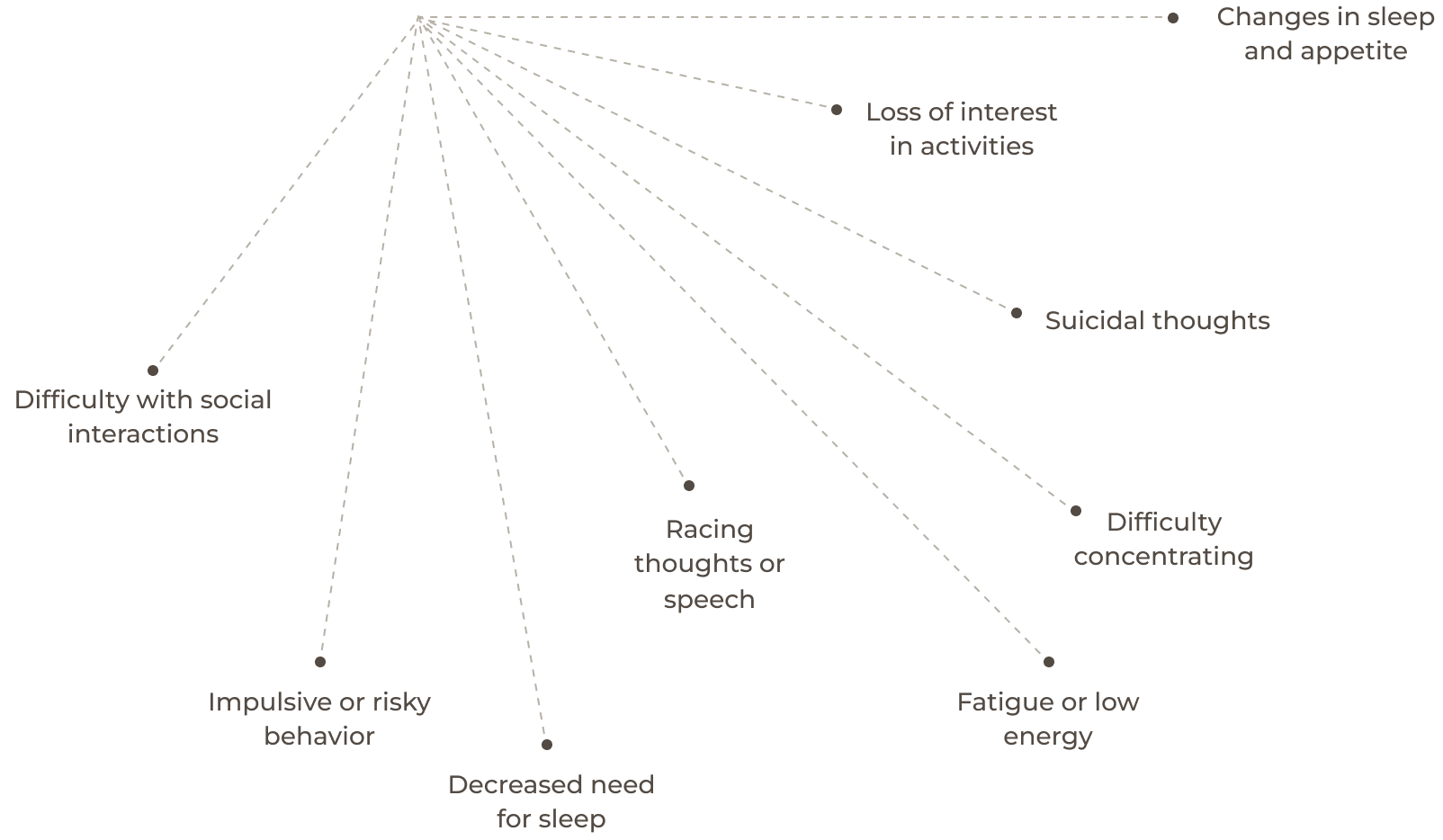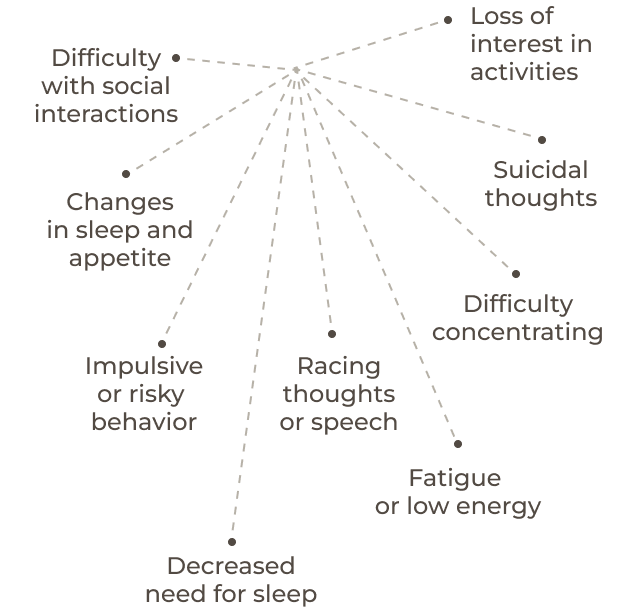Bipolar Disorder

Bipolar disorder is a mental health condition characterized by extreme mood swings that encompass emotional highs (mania or hypomania) and lows (depression). These shifts can vary in intensity and duration, significantly impacting a person’s behavior, energy levels, and overall ability to function. There are several types of bipolar disorder:
Bipolar I Disorder is marked by severe manic episodes lasting at least a week, which may require hospitalization, often followed by depressive episodes;
Bipolar II Disorder features hypomanic episodes that are less severe than full-blown mania, combined with major depressive episodes;
Cyclothymic Disorder includes periods of hypomanic and depressive symptoms that are milder but last for a longer duration.
Effective management of bipolar disorder typically requires a long-term approach, often involving a combination of medication, such as mood stabilizers and antipsychotics, along with therapy to help stabilize moods and enhance quality of life.

Symptoms
of Bipolar Disorder



How We Can Help with Bipolar Disorder

An initial psychiatric evaluation is a crucial step in effectively diagnosing and managing bipolar disorder. During this comprehensive assessment, we gather detailed information about the individual’s medical history, symptoms, and personal circumstances. This evaluation aims to distinguish bipolar disorder from other mental health conditions, identify the specific type of bipolar disorder present, and assess the severity of mood episodes. By understanding the patient’s unique experiences and challenges, we can develop a tailored treatment plan that may include medication, therapy, and lifestyle recommendations.
Medication management is a vital service for individuals with bipolar disorder. It plays a key role in stabilizing mood and reducing the frequency and severity of episodes. A healthcare provider evaluates each patient and prescribes medications such as mood stabilizers, antipsychotics, and antidepressants, tailored to the specific needs of the patient. This approach empowers patients to engage actively in their care and ensures they receive the right dosage and combinations of medications. Effective medication management helps mitigate the symptoms of bipolar disorder and enhances overall well-being, allowing individuals to lead more balanced and fulfilling lives.
Through one-on-one sessions, we provide a safe space for patients to explore their thoughts, feelings, and behaviors related to their mood episodes. This therapeutic approach helps individuals develop coping skills, identify triggers, and enhance emotional regulation. Additionally, psychotherapy can improve self-awareness and foster a better understanding of the disorder, empowering patients to navigate challenges more effectively. By addressing underlying issues and promoting personal growth, individual psychotherapy complements medication management and leads to a higher quality of life for those living with bipolar disorder.
Lab monitoring involves regular assessments of blood levels and other health indicators to ensure that medications are working effectively and to detect any potential side effects. This process helps us make informed adjustments to the treatment plan as needed. Psychotropic genetic testing, on the other hand, analyzes an individual’s genetic makeup to predict how they may respond to specific medications. By identifying genetic factors that influence drug metabolism, this testing can guide personalized treatment choices, reducing the trial-and-error approach often associated with finding the right medication.
Let’s Connect!

